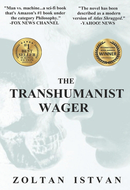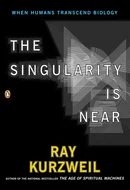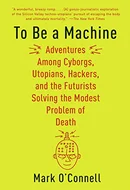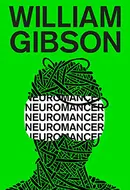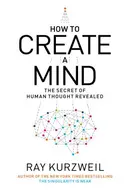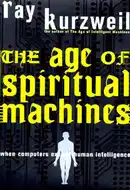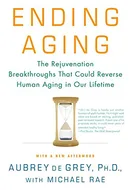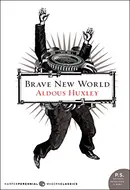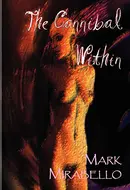Books matching: transhumanism
100 result(s)
Readers also searched for:
- #1
The Transhumanist Wager by Zoltan Istvan is a philosophical science fiction novel set in a near future Earth where transhumanism faces opposition from governments and religious entities. The story follows the protagonist, Jethro Knights, a brilliant transhumanist who embarks on a journey to accelerate innovation and global revolution while facing ideological and political conflicts with the establishment.
The novel explores themes of technological advancements, human evolution through enhancements, and the pursuit of immortality. It delves into the philosophical aspects of transhumanism, challenging traditional beliefs and moral concepts, while presenting a gripping narrative filled with action, tragedy, and thought-provoking ideas.
His life was about to end. A seventy-foot wall of shifting blue with a million tons of water was veering down on him. It was the largest wave of the hurricane—what scientists and sea captains call a r... 'The Singularity is Near: When Humans Transcend Biology' by Ray Kurzweil delves into the concept of singularity, where artificial intelligence surpasses human intelligence, leading to a transformative era. Kurzweil projects a future where technology, genetics, nanotechnologies, and robotics converge to enhance human abilities, potentially leading to immortality and super intelligence. The book explores the accelerating rate of technological change, the potential benefits and risks of advancements, and the possibilities of a future where humans and machines merge.
Kurzweil presents his ideas in a mix of hardcore materialism and whimsical debates, providing a comprehensive review of ongoing research and future possibilities. Through imaginative scenarios and engaging dialogues, the author navigates complex scientific concepts in a clear and accessible manner, offering readers a glimpse into a future where technology and biology intersect to redefine human existence.
I am not sure when I first became aware of the Singularity. I’d have to say it was a progressive awakening. In the almost half century that I’ve immersed myself in computer and related technologies, I...- #3
'To be a Machine' by Mark O'Connell delves into the world of transhumanism, exploring the concept of overcoming human mortality through technology. The book provides a comprehensive overview of various aspects of transhumanism, from implants to brain emulation, and discusses key figures in the field. O'Connell's writing style is described as humorous and insightful, offering a unique perspective on a topic that is often misunderstood or sensationalized.
ALL STORIES BEGIN in our endings: we invent them because we die. As long as we have been telling stories, we have been telling them about the desire to escape our human bodies, to become something oth... - #4
Neuromancer by William Gibson is a groundbreaking cyberpunk novel that introduces readers to a world of man-machine interfaces, hive minds, and personality transformations. The story is fast-paced, immersing readers in the vast world of the Sprawl with minimal guidance, creating a challenging yet enjoyable reading experience. Gibson's descriptive writing style paints a vivid picture of a future society filled with high-tech advancements and morally ambiguous characters, ultimately leading readers through a complex narrative that explores artificial intelligence, collective consciousness, and surgical enhancement.
“It’s not like I’m using,” Case heard someone say, as he shouldered his way through the crowd around the door of the Chat. “It’s like my body’s developed this massive drug deficiency.” It was a Sprawl... - #5
'Accelerando' by Charles Stross is a mind-bending journey through the concept of the Singularity, exploring a future where humanity evolves alongside advanced technologies. The book weaves together multiple generations of the Macx family as they navigate the consequences of rapid technological change, pushing the boundaries of what it means to be human. Stross presents a dense narrative filled with futuristic ideas such as posthumanism, artificial intelligence, and societal transformations, creating a complex and thought-provoking exploration of the potential future of humanity.
The writing style of 'Accelerando' has been described as dense, filled with jargon, pseudo-physics, and sci-fi cliches that challenge readers to keep up with the rapid pace of technological advancements presented in the story. Stross blends elements of space opera with down-to-earth societal issues, creating a unique reading experience that balances between futuristic concepts and relatable human dilemmas.
Three years later, Manfred is on the run. His gray-eyed fate is in hot pursuit, blundering after him through divorce court, chat room, and meetings of the International Monetary Emergency Fund. It's a... 'How to Create a Mind: The Secret of Human Thought Revealed' by Ray Kurzweil delves into the secrets of human brains and explores the possibilities of reproducing human thought through Artificial Intelligence. Kurzweil argues that memories are stored as sequences of patterns, emphasizing the brain's core capability of recognizing patterns over processing logic. The book discusses the hierarchical organization of the neocortex and projects the construction of artificial equivalents of human brains with emotions and consciousness. Kurzweil also touches upon the evolution of the human brain, the structure of the neocortex, and the potential for machines to surpass human intelligence.
The writing style of the book is described as thought-provoking and intellectually stimulating, challenging readers to think deeply about the nature of human thought and the future of Artificial Intelligence. Kurzweil's theories on thinking, pattern recognition, and the architecture of the brain are presented in a detailed and informative manner, drawing from his vast knowledge in computing and technology. The book also explores philosophical concepts, the divide between Western and Eastern worldviews on faith, and the potential implications of AI advancements on society.
With the description of a molecule that could code the program of biology, a unifying theory of biology was now firmly in place. It provided a simple and elegant foundation to all of life. Depending o...- #7
'The Age of Spiritual Machines' by Ray Kurzweil discusses the future of artificial intelligence and intelligent machines, predicting a world where intelligence surpasses human capabilities. Kurzweil presents a vision of a future where humans and machines coexist, with the potential for human minds to migrate into machines and lead more expansive lives within this new medium. The author explores the social, ethical, and technological implications of this future, emphasizing the explosive growth of machine intelligence and the potential for a new era of evolution driven by beings with unimaginable levels of intelligence.
The mechanism to peel off copies of the DNA code consists of other special machines: organic molecules called enzymes, which split each base pair and then assemble two identical DNA molecules by remat... - #8
'Ending Aging' by Aubrey de Grey and Michael Rae explores the possibility of reversing human aging through rejuvenation breakthroughs. De Grey presents a comprehensive plan called SENS (Strategies for Engineered Negligible Senescence) to address the seven types of cellular damage that contribute to aging. delves into the underlying mechanisms of aging at the cellular level and proposes solutions to manipulate these mechanisms to potentially achieve indefinite youthful lifespans. De Grey's writing style combines hard science with Silicon Valley's techno-optimism, making complex biological concepts accessible to readers.
- #9
'Brave New World' by Aldous Huxley is a dystopian novel that presents a future society where people are genetically engineered and conditioned to fit into specific societal roles. The story follows characters like Bernard Marx and Lenina Crowne as they navigate a world where happiness is superficially guaranteed through recreational sex, drugs, and conditioning. The arrival of an outsider named John Savage challenges the norms of this society, leading to a clash of cultures and a questioning of what it means to be truly human. Huxley's writing style is described as thought-provoking, satirical, and ahead of its time, offering a critique of modern consumer culture and technological progress.
A squat grey building of only thirty-four stories. Over the main entrance the words, CENTRAL LONDON HATCHERY AND CONDITIONING CENTRE, and, in a shield, the World State's motto, COMMUNITY, IDENTITY, STABIL... - #10
'The Cannibal Within' by Mark Mirabello is a horror novella that delves into the existential crisis of mankind, portraying humans as livestock for superior beings living beneath the earth. The plot revolves around a young woman who, after a series of horrific events involving satanic rituals and transhumans, documents her ordeal in a manuscript that challenges the traditional beliefs about humanity's place in the world. The writing style of the book is described as shocking, avant-garde, and decadent, combining elements of alternative religions, cults, and gore to create a weird and wonderful narrative.
